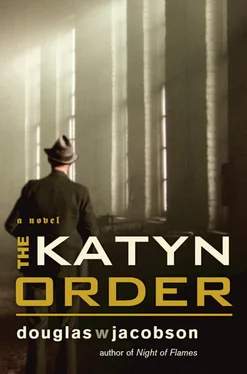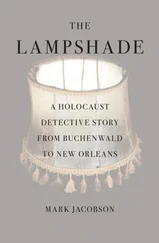8 July 1941
Books are being smuggled out of the library. I have struggled with the potential danger of recording this activity in this journal, but then it is probably no more damning than most everything else I have written. And if this journal ever reaches the civilized world, it is important to record for history that some of us are attempting to preserve what we can of Polish culture.
The schools in Poland have been closed for almost two years, but teaching continues. It continues in the cellars and attics of people’s homes, in the backrooms of shops and warehouses, wherever people can gather with their children out of sight of the Gestapo. Months ago, those of us working in the library learned of these activities and focused our efforts on smuggling out Polish books, passing them on to operatives in the Resistance to aid in the continuing education of our young people. The candle of learning must not be extinguished, no matter the danger.
The task is complicated because of the extreme danger if we should be caught. It would be a death sentence for all of us, of that I am certain. It is complicated and hazardous, and today it almost ended in disaster, but for a very strange occurrence which I cannot fully explain.
Herr Kruger approached me late in the afternoon holding a sheet of paper that he said was a message from a local Gestapo agent. The agent reported that a box of Polish books had been discovered hidden in the back of a grocer’s cart not far from the library. The Gestapo agent interrogated the grocer about the source of the books, but the man insisted they were from his family’s private collection and that he was delivering them to his daughter. The books were confiscated and the grocer shot for subversion.
I held my breath as Kruger said this, swallowing hard for fear I would get sick. The Gestapo agent wondered if the books had been smuggled out of the library, Kruger said, but he had assured him they had not come from the Staatsbibliothek Krakau. Then he turned away without further comment.
18 October 1941
Autumn has come, and we face another brutal winter under German occupation. Reports trickling out from the Krakow ghetto describe deteriorating conditions beyond anything we could have imagined. Within the last month, another six thousand Jews from surrounding villages have been herded behind the brick walls. Desperate people are chopping up furniture for fuel and bartering what few possessions they have left for bread and potatoes. Every day horse-drawn carts laden with corpses exit the ghetto through the heavily guarded entrances.
Frank spoke to the workers in the library today, telling us how pleased he was at our progress and how the Staatsbibliothek Krakau will soon become the most renowned institution in the Third Reich. He praised Herr Kruger for his leadership, then dismissed us to resume our work.
Later, on his way out of the building, Frank asked me to walk with him to the door. He said that he was pleased to hear from Herr Kruger about my excellent work at the library. Then he added that he was certain Beata will be pleased when she returns to see what has been accomplished. The comment drove a stake of fear into my heart. I was so stricken that I stood mute as he turned away and walked to his waiting automobile.
At six o’clock, just as the workers were about to leave, Herr Kruger summoned me to his office. We spoke for a few moments about the progress of the library, then he asked me what Frank and I had talked about. I repeated what Frank had told me about my work in the library. He asked if Frank had mentioned his future plans for the ghetto. I said that he had not, and as I said this I noticed that Kruger’s face was pale and his hand trembled. He stared at me for several moments, then stood up and bid me good night.
19 October 1941
As I was about to leave my apartment this morning, I noticed an envelope which had apparently been slid under the door sometime during the night. Inside was a key with the marking “L-3” embossed on the head. I was dumbfounded. Who could have left it? What could it possibly mean? L-3 is a designation for a room on the lower level of the library. I hesitated for a long time, wondering what to do, my mind conjuring up all manner of possibilities, none of which made any sense. Finally, I removed one of my shoes, slipped the key inside and left for work.
Just as he had last night, Herr Kruger summoned me to his office at six o’clock, as everyone was leaving. He said that he had advised the night shift guards that I would be working a few hours later this evening. He looked at me for a moment as though trying to decide what to say next. Then he told me that the guards take a forty-five minute dinner break at seven o’clock, up on the third floor.
A few minutes after seven, I sat at my table in the Reading Room thinking about the inexplicable conversation with Kruger. I hesitated for several more minutes, then got up, walked across the large room to the door at the far end of the counter and descended the service stairs to the lower level. I located room L-3, unlocked it and stepped inside.
The room was filled with shelves containing dozens of cardboard file boxes. In the center of the room, a small table held one box marked with the word “Podgorze,” which is the section of the city where the ghetto has been constructed.
I opened the box. As I went through the documents inside I was astounded. They included detailed plans for the construction of the ghetto, calculations of the number of people that could be crammed into various types of houses and apartments, and predictions of death rates due to starvation and disease. My hands were shaking as I removed document after document, each filled with gruesome details of the carefully planned imprisonment and extermination of Krakow’s Jews. And everywhere I found the signature of Hans Frank.
I glanced at my watch. It was seven thirty. I went through the documents a second time, removing several I judged to be most important and replaced the lid on the box. Scarcely able to breathe, I left the room, locked it and went home. In my apartment, I hid the documents beneath the floorboards of the closet where I keep this journal.
12 January 1942
I have been assigned “night duty” every other week since last October. There is always a single cardboard file box on the table in room L-3. The boxes include drawings, specifications and detailed work plans for concentration camps all over Poland. There are memos from Frank to various officials in Berlin, with attached reports written by Frank’s subordinates, describing in academic detail the gradual starvation of the Polish population. There are reports itemizing the thousands of tons of agricultural production diverted to Germany each month and others documenting the tens of thousands of Jews arriving in Poland, transported from Western Europe in trucks and railroad box cars. It is so incomprehensible that I sometimes wonder if this is really happening or if we are all caught in some cruel, demented dream.
Shortly after my “night duties” began I realized what had to be done with documents I’d smuggled out of the library. The channel has been resumed. Many are taking risks to preserve what little is left of our humanity. May God grant that our efforts are not in vain.
18 January 1942
Frank summoned me to his office in Wawel Castle today. This was the first time I have been there since I was assigned to work in the library seventeen months ago. I was terrified. Had he found out about the documents I’d been smuggling? Had he discovered the channel?
When I was shown into the office, Frank ordered me to sit and stood over me waving a sheaf of papers. “This is proof of their madness!” he shouted, dropping the papers on a table in front of me. I did not reach for them. I have learned not to anticipate anything where Frank is concerned.
Читать дальше












